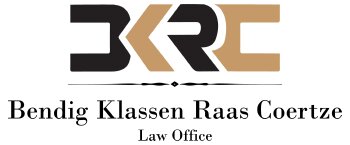Best Appeal Lawyers in Prince Albert
Share your needs with us, get contacted by law firms.
Free. Takes 2 min.
List of the best lawyers in Prince Albert, Canada
About Appeal Law in Prince Albert, Canada
Appeal law in Prince Albert, Saskatchewan, involves the process of reviewing and potentially overturning the decision of a lower court. When an individual or a party is dissatisfied with a court judgment, they may seek an appeal if they believe there was an error in the application of the law or a miscarriage of justice. The Court of Appeal for Saskatchewan, located in Regina, is the highest appellate court in the province. Appeals are limited to questions of law and not of fact; thus, the court reviews whether the law was applied correctly in the original case rather than re-evaluating the facts.
Why You May Need a Lawyer
There are several common situations where individuals might seek legal help regarding appeals:
- The trial court made a legal error that affected the outcome of your case.
- There are grounds for appeal based on improper procedure or unfair trial practices.
- New evidence has come to light that could significantly impact the case outcome.
- Government agencies’ decisions need to be reviewed.
- Concerns about the interpretation of laws or statutes by a trial judge.
Engaging a lawyer can significantly increase your chances of success in these scenarios, as they can navigate complex legal arguments and present your case effectively.
Local Laws Overview
In Prince Albert, as part of Saskatchewan, appeals are regulated under the rules of the Court of Appeal Act, 2000. Key aspects include:
- The right to appeal is generally available in both civil and criminal matters, although certain appeals require permission (leave to appeal).
- Deadlines are critical as appeals must typically be filed within 30 days after the trial court’s decision.
- The appeal process does not involve a new trial or presentation of new evidence but focuses on reviewing the lower court's application of the law.
- Appeals must be based on solid legal grounds, such as misapplication of the law, procedural errors, or misinterpretation of legal principles.
Frequently Asked Questions
What is the first step in filing an appeal?
The first step is to file a 'Notice of Appeal' with the appropriate appellate court within the prescribed time limits, usually within 30 days of the judgment.
Can I introduce new evidence during an appeal?
Generally, no. Appeals are strictly on the record of what occurred in the trial court. New evidence is rarely admitted unless it is exceptionally crucial and was unobtainable at trial despite due diligence.
How much does it cost to file an appeal?
The cost varies, but it typically includes filing fees, legal fees if a lawyer is engaged, and possibly additional costs for preparing transcripts and other documentation.
How long does the appeal process take?
The timeline can vary significantly but expect several months to a year, depending on the complexity and the court’s schedule.
What happens if I miss the appeal deadline?
Missing a deadline is serious; however, in rare circumstances, the court may grant an extension if exceptional reasons are provided.
What will happen at the appeal hearing?
During the hearing, legal counsel will present oral arguments focusing on legal errors made during the trial. The appellate judges may ask questions to clarify points.
Do I have a right to be represented by a lawyer during an appeal?
Yes, you have the right to legal representation, although it is not mandated. Given the complexity of appeals, legal counsel is highly recommended.
Can the appellate court's decision be further appealed?
In certain cases, decisions can be appealed to the Supreme Court of Canada, but this requires obtaining leave and is rare.
What outcomes can result from an appeal?
Possible outcomes include the appellate court denying the appeal, reversing or modifying the decision, or sending the case back to the lower court for a new trial.
Are appeals public record?
Yes, appeal decisions are typically part of the public record and may be published online or in print.
Additional Resources
If you are seeking further assistance or information, consider the following resources:
- Legal Aid Saskatchewan: Offers legal assistance for those who qualify.
- Saskatchewan Ministry of Justice: Provides information and services related to the legal system in Saskatchewan.
- The Law Society of Saskatchewan: Offers resources and a directory of legal professionals.
- Prince Albert Bar Association: A local network of legal professionals and resources.
Next Steps
If you determine that you need legal assistance for an appeal in Prince Albert, Canada, your next steps should be:
- Consult with a legal professional who specializes in appellate law to discuss your case.
- Gather and organize all relevant court records, documents, and evidence.
- Ensure you understand the deadlines and requirements for filing an appeal.
- Explore the possibility of legal aid if financial constraints are a concern.
Being proactive and informed can make a significant difference in the appeal process and its outcome.
Lawzana helps you find the best lawyers and law firms in Prince Albert through a curated and pre-screened list of qualified legal professionals. Our platform offers rankings and detailed profiles of attorneys and law firms, allowing you to compare based on practice areas, including Appeal, experience, and client feedback.
Each profile includes a description of the firm's areas of practice, client reviews, team members and partners, year of establishment, spoken languages, office locations, contact information, social media presence, and any published articles or resources. Most firms on our platform speak English and are experienced in both local and international legal matters.
Get a quote from top-rated law firms in Prince Albert, Canada — quickly, securely, and without unnecessary hassle.
Disclaimer:
The information provided on this page is for general informational purposes only and does not constitute legal advice. While we strive to ensure the accuracy and relevance of the content, legal information may change over time, and interpretations of the law can vary. You should always consult with a qualified legal professional for advice specific to your situation.
We disclaim all liability for actions taken or not taken based on the content of this page. If you believe any information is incorrect or outdated, please contact us, and we will review and update it where appropriate.









